TMJ and TMD disorder are marked by inflamed and painful chewing muscles around the jaw. While many people experience TMJ as a once-off issue, it can become so uncomfortable that you may need to seek treatment. In this article, we answer common questions about TMJ and TMD disorder.
What Is TMJ/TMD Disorder?
The TMJ acts as a sliding hinge. This facial ‘hinge’ connects your jawbone to your skull. A TMJ disorder can lead to pain in your jaw muscles and the jaw joints that control the movement of your jaw.
What Does TMJ and TMD Stand For In Medical Terms?
TMJ stands for the temporomandibular (tem-puh-roe-mun-dib-u-lur) joint.
TMD stands for the temporomandibular joint disorder.
What Does TMJ Feel Like?
It can feel like a throbbing pain in your jaw, a dull ache in your jaw or a searing pain on the side of your face.
How Long Does TMJ Last?
For the most part, a TMJ disorder is temporary and the pain can be relieved with self-managed care or nonsurgical treatments. When conservative methods have failed, it is advised to consult a surgeon because some people with TMJ disorders can benefit from surgical treatments.
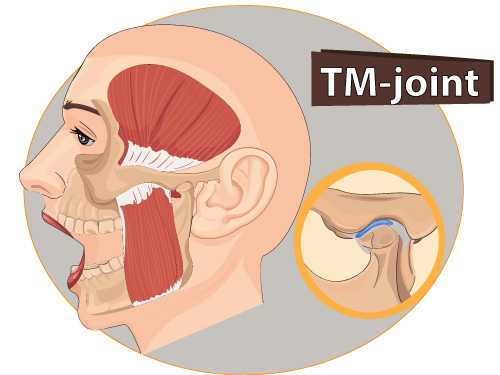


What Is A TMJ Headache?
TMJ causes jaw pain and this pain is often mistaken for recurring tension headaches. A TMJ headache is one that does not respond to tension headache treatments. To effectively treat the TMJ headache, you will need to focus on treating the source of your TMJ discomfort.
How Common Is TMJ?
Temporomandibular joint and muscle disorders are quite common. Most people with TMJ are between the ages of 20 and 40 years old.
How Many People Have TMJ?
According to the National Institute of Dental and Craniofacial Research, we don’t know for certain how many people have TMJ disorders, but some estimates suggest that over 10 million Americans are affected. It appears that TMJ disorders affect more women than men.
What Is A TMJ Splint?
A TMJ splint is a conservative type of TMJ therapy. Splint therapy may be defined as:
“The art and science of establishing neuromuscular harmony in the masticatory system by creating a mechanical disadvantage for parafunctional forces with removable appliances.”
The splint is used as a diagnostic, relaxing, repositioning, and reversible device. It affects the relationship of the mandible to the maxilla and can be used to treat TMJ disorders or to prevent wear of the dentition.
How Does TMJ Affect Your Ears?
The pain from TMJ generally occurs while sufferers are talking, chewing or yawning. Some people experience pain in the front of the ear, ringing in the ears, and even hearing loss. It is for this reason that treating your TMJ should be a top priority.
How Do You Get TMJ Syndrome?
When the joint of your jaw is injured or damaged, it can lead to a TMJ disorder. Misalignment of the teeth or jaw, poor posture, injury to the teeth or jaw, teeth clenching, teeth grinding, stress, arthritis, and chewing gum could also have led to your TMJ disorder.
Can TMJ Go Away On Its Own?
It can go away on its own with a combination of self-managed and professional care.
What Causes Jaw Pain?
There can be many different causes of jaw pain. It could be genetics, a jaw injury or arthritis. Many people who have jaw pain grind or clench their teeth, but this is not a predictor of people who have TMJ disorders. Jaw pain is often caused by overuse from grinding your teeth in your sleep and from stress. It can also be caused by a sinus infection, a toothache or periodontal disease.
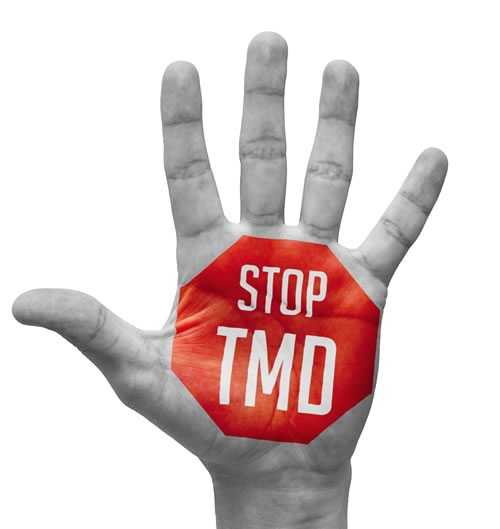


What Causes TMJ
Some of the causes of TMJ include changes in the tooth structure due to dental procedures which may include things such as:
- Tooth replacements,
- Trauma in the joint or cartilage,
- The onset of arthritis, and
- Muscle spasms in the head, jaw, or neck, which are often the result of injuries or accidents.
How To Diagnose TMJ
If you are struggling to chew, open or close your mouth, and talk, then it is possible that you have TMJ. Disorders of the temporomandibular joints are generally marked by an aching pain in the jaw or facial muscles. Other symptoms that can alert a professional to TMJ include the following:
- Toothache,
- Facial swelling,
- Gum disease, and
- Arthritis
Speak to a professional before you diagnose yourself as there could be other causes of discomfort.
What Are The Symptoms Of TMJ?
- Pain in one or both of the temporomandibular joints, Sensitivity to sound,
- A dull or throbbing pain around your ear,
- Vertigo,
- ‘Clicks’ and noises in the jaw,
- Jaw popping,
- Trouble chewing,
- Facial pain.
- Tenderness of your jaw, and
- Locking of the joint.
How Do You Know If You Have TMJ?
TMJ disorders can cause a clicking sound or a grating sensation in your mouth when you chew. If you aren’t experiencing any limitation of movement in your jaw or pain, then you do not have to seek treatment at this point. Research your symptoms online and book an appointment with a medical professional specializing in TMJ disorder for a diagnosis.
What Causes TMJ To Flare Up?
Stress has been known to cause TMJ to flare up. If you are one of the people who struggle with teeth clenching and grinding, then added stress in your life could lead you to unknowingly increase the grinding and clenching subconsciously while you are awake and while you are asleep.
Where Does TMJ Hurt?
It will hurt where your jaw meets your skull or along the side of your face. It can also lead to headaches, neck pain, and limitation in movement when a person with TMJ is eating. Some people experience sharp pains along their jaw line, while others have a dull pain in their jaw joint.
How Painful Is TMJ
Some people experience discomfort when they eat, are unable to fully open and close their mouths comfortably when they chew, and some people are unable to cope with the pain. The level of discomfort you experience will depend on your individual situation.

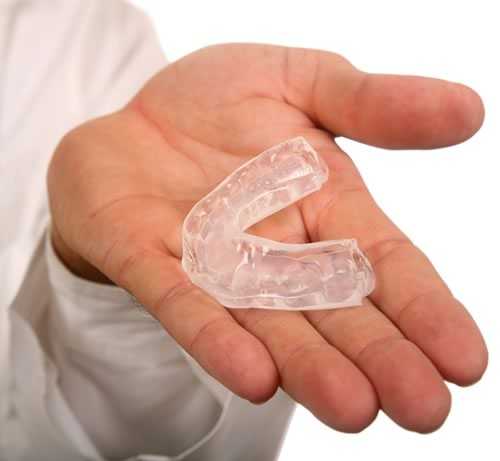
How Can You Prevent TMJ?
- Focus on keeping your face relaxed with your lips together and your teeth apart,
- Minimize foods that need a lot of chewing, such as chewing gum and other tough foods like steak and cereals,
- Avoid grinding and clenching your teeth by wearing a mouth guard, and
- Massage your temples, cheeks, and jaws regularly.
How Can You Reduce Jaw Pain?
For the most people, the pain from TMJ will eventually go away on its own through simple self-care practices. Invest in ergonomic furniture so that you can make sure that you have a good posture. While yawning, support your lower jaw with your hand, and avoid resting your chin on your hand. Avoid biting on hard objects such as pens and pencils, and you should also avoid cradling your phone between your ear and your neck.
How Do You Massage TMJ?
There are different types of massage techniques that can be used to relieve TMJ pain, including stretching massage, friction massage, and kneading massage. The most common type of massage is the kneading massage, where you use your fingers to provide a constant, circular motion against the joints and muscles that are causing pain. The masseter muscles in your lower jaw are located directly behind your molars and just below your cheekbone. Massage the area alongside your jaw between your mouth and your ear.
What Are The Best Foods To Eat To Ease TMJ?
Soft foods such as cheese, fish, fruit smoothies, oatmeal, beans, steamed vegetables, scrambled eggs, mashed potatoes, yogurt, and soup.
What Happens If TMJ Goes Untreated?
The good news is that TMJ is not a life-threatening condition. The bad news is that the pain can become increasingly worse if it is left untreated. If you are experiencing pain and discomfort in your jaw and face, speak to a professional as soon as possible. If left untreated, the pain and discomfort could potentially lead to depression and anxiety.
How Do You Treat TMJ Pain?
Many times, your pain will be relieved by a combination of massages and focusing on keeping your facial muscles relaxed. If the kneading massage technique mentioned above has not worked for you, the mandible muscle may be the culprit. Place both your thumbs parallel to your jaw line just above the mandible muscles. Press down onto the muscle and drag your thumbs against your jaw to slowly stretch the muscle away from your upper jaw.
How Do You Relieve TMJ Pain?
- Eat soft food,
- Use the massage techniques mentioned above,
- Focus on keeping your facial muscles relaxed,
- Over-the-counter medications such as ibuprofen and naproxen can be used,
- Moist head and cold packs,
- Avoid extreme jaw movements, and
- Keep your teeth slightly apart.


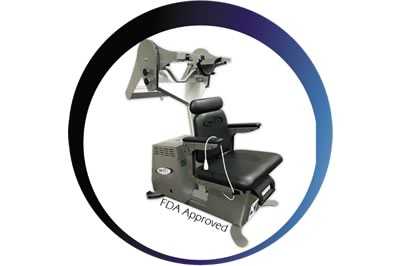
How Can You Cure TMJ Permanently?
While anti-inflammatories and pain relievers will temporarily take away the pain, the only way to cure TMJ permanently is through professional care and advice. This does not mean that you will necessarily be booked for surgery, but professional treatment and self-care advice can go a long way in curing your symptoms.
How Do You Deal With Severe TMJ Pain?
People experience TMJ differently. If you are prone to severe TMJ pain, invest in heat and cold packs and ask your doctor for over-the-counter medications that can relieve the pain. Use different massage techniques and keep massaging the muscles that are contributing to your pain or discomfort.
How Long Does It Take For TMJ To Go Away?
It depends on the cause of your TMJ. Signs and symptoms of TMJ disorder can last anywhere from a few days and a few weeks. If your pain is caused by an injury, accident, or another type of trauma, then the pain will only go away once the source of the problem has been fixed. People with chronic TMJ can experience a dull pain consistently with episodes of sharp pain.
How Long Does TMJ Lockjaw Last?
The word ‘lockjaw’ unsurprisingly makes people worried. Lockjaw prevents or inhibits the normal opening and closing of the jaw. While lockjaw (also known as trismus) may be connected with tetanus, which is a life-threatening disease, lockjaw from TMJ is not life-threatening and it is generally caused by muscle spasms. As soon as the muscle is relaxed, the lockjaw will past.
Can TMJ Require Surgery?
Only in rare and severe circumstances will it require surgery. If a patient has extreme TMJ disorder, a surgeon may recommend that a condylotomy surgery replace the jaw joint with an artificial joint. This is the last resort and all other options should be thoroughly explored first.
Are There Alternative Treatments To TMJ Surgery?
There are many alternatives to TMJ surgery. Some dentists may recommend creating a more even bite by correcting the way that the teeth are aligned. A dentist may also recommend replacing missing teeth, fillings or crowns that are affecting your bite. Other options include massage therapy, over-the-counter medication, and prescription medication. Changing your diet to soft foods has helped many people to avoid TMJ surgery.
Who Treats TMJ?
If you suspect that you have TMJ, visit a medical practitioner immediately. Opt for the least invasive method of treatment first. The team at The Head and Neck Centers of Excellence uses AS remodeling. This is a rehabilitation protocol that uses neuro-movements, physiotherapy, exercises, and iTrac therapy to treat the TMJ disorder.

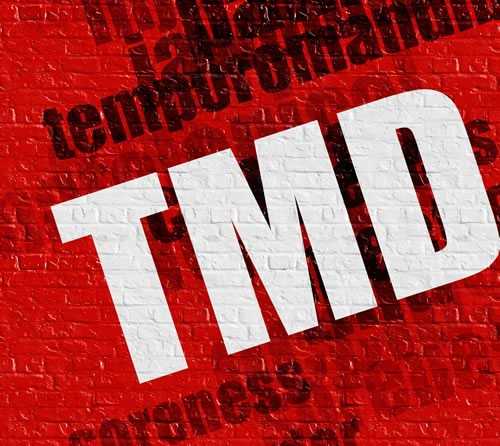
What Kind Of Doctor Treats TMJ Disorder?
Many sufferers of a TMJ disorder partner with medical professionals who specializes in chiropractic biophysics to treat the TMJ disorder. At The Head and Neck Centers of Excellence, our team of professionals has achieved measurable and long-lasting results with iTrac, which alters the shape of the spine by remodeling the spinal soft tissues.
What Kind Of Doctor Should I See For Jaw Pain?
Your first point of contact should be a doctor specializing in TMJ disorders. For the least invasive options, consider a Chiropractor that specializes in jaw alignment and knows how to address the muscles and soft structures that support the jaw area. Other options include doctors, dentists, and surgeons, but these medical professionals should be the last resort.
Who Can Diagnose TMJ?
Medical professionals specializing in TMJ disorders can diagnose the problem. During the physical exam, a doctor, dentist or chiropractor will probably listen to and feel your jaw when you open and close your mouth, try to identify the source of discomfort, and observe the range of motion in your jaw. They will also ask you about your symptoms, lifestyle, and past injuries or accidents that may have led to the TMJ disorder.
Why Choose The Head And Neck Centers Of Excellence For TMJ Pain?
We strive to help those struggling with TMJ pain without the need for invasive, painful surgery and without the need for drugs. Our gentle approach will have you living life the way you want to much sooner than you could ever have expected. Our approach is unique because we address the muscles of the jaw, neck and head as well the relating joints to ensure correction and lasting results. Book your appointment at The Head and Neck Centers of Excellence today.
